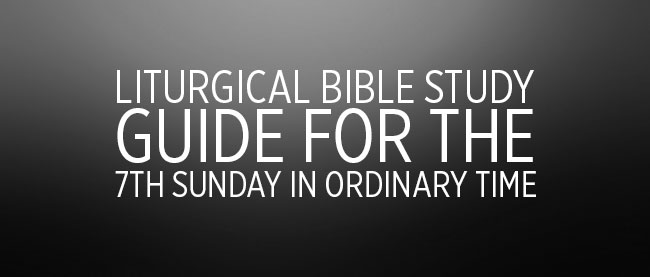1st Reading – Isaiah 43:18-19, 21-22, 24b-25
In this portion of Isaiah, the prophet writes of the exile which Israel and Judah will
undergo (Israel in 722 B.C. and Judah in 605-586 B.C.) because they have been an unfaithful bride to God. All mankind will witness this exile because the kingdom of God is at hand and the poor and lowly, rather than the Davidic family, will have the most prominent places in it. Every divine promise is on the point of fulfillment because God is just.
Before the exile Israel was relatively prosperous, overly self-confident, and very
material-minded. Isaiah sees that the people will be discouraged, dazed and even destitute while in exile. Because of this, they must be consoled rather than punished, their faith must be sustained rather than tried. He sees Abraham as the rock upon which all future ages may look for example and the exodus from Egypt as an ever-continuing act of salvation for his people. He looks to this time and writes to bolster the faith of the people in their time of need.
2nd Reading – 2 Corinthians 1:18-22
Today we begin our study of Saint Paul’s second letter to the Corinthians. According to the letter itself (2:12-13; 7:5-7; 8:1-15; 9:2) Saint Paul composed this letter in Macedonia after leaving Ephesus. This would place the date of composition most likely in the autumn of A.D. 57. Saint Paul had spent eighteen months establishing the church in Corinth and is now distressed by the misunderstanding and evil-doing of some of his beloved Corinthian people; yet he is also pleased when he can praise them in any way.
It appears that the Corinthian people have been influenced by missionaries from Palestine. These missionaries regard themselves as supermen, heavenly men, the seed of Abraham, Hebrews par excellence. They think that they have the power to make others supermen like themselves. They seem to think of Christ as the supreme example of the heavenly man, despising His humanity. His death made no difference because He was just as “heavenly” before His death as after it. They seem to have no use for suffering or sacrifice, regarding their own success and wealth as a proof of their power as missionaries.
Gospel – Mark 2:1-12
Jesus has just begun His public ministry. He is in Galilee and has already come to the attention of the scribes and Pharisees who begin to oppose Him. In our reading today we find several indicators of Jesus’ divine nature: He forgives sins, He can read the human heart, and He has the power to heal physical illness instantly.


